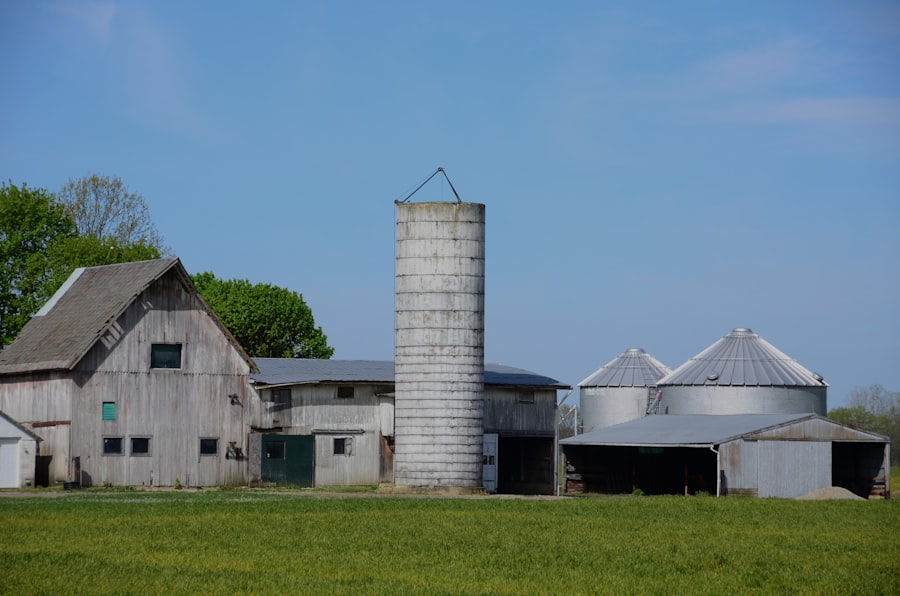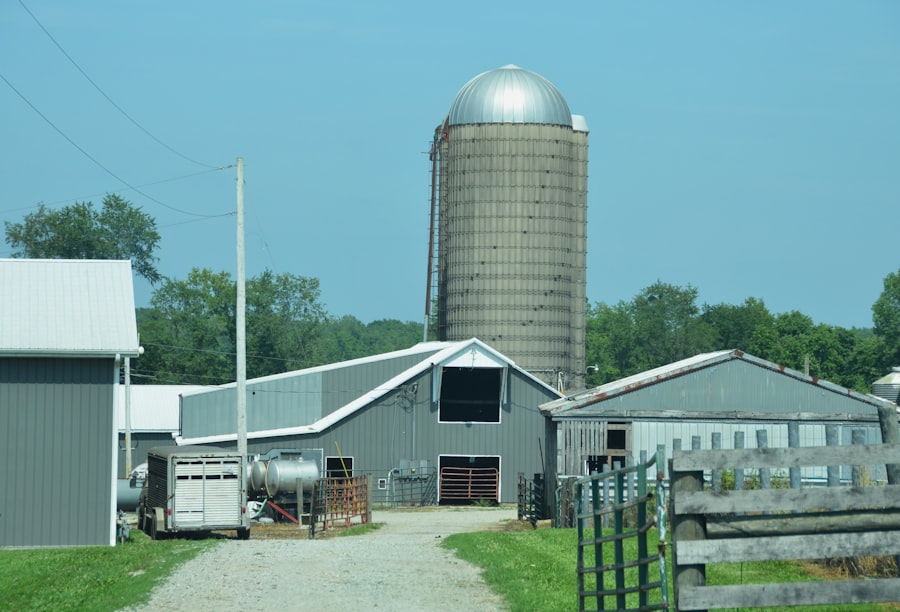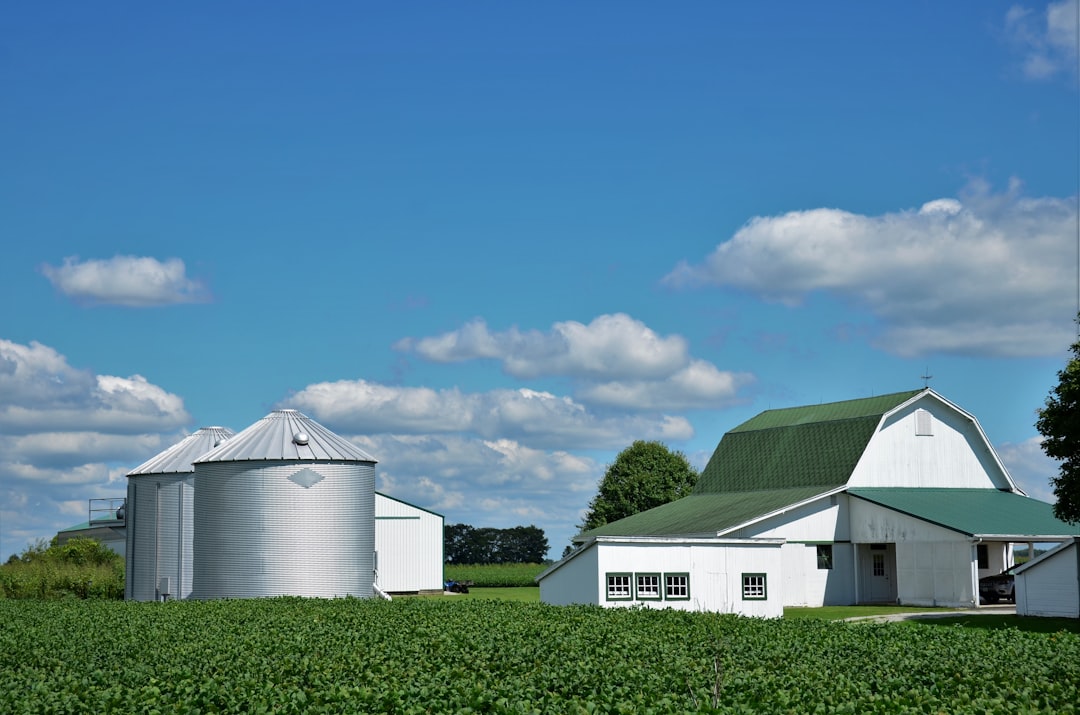Farm consolidation has emerged as a significant trend in the agricultural landscape, particularly in the United States. This phenomenon involves the merging of smaller farms into larger agricultural operations, often driven by economic pressures, technological advancements, and changing market demands. As family-owned farms face increasing challenges, the consolidation process has reshaped the farming industry, leading to both opportunities and obstacles for small towns that rely heavily on agriculture.
Understanding the implications of farm consolidation is crucial for grasping its effects on rural communities, economies, and the environment. The dynamics of farm consolidation are complex and multifaceted. While larger farms can benefit from economies of scale, increased efficiency, and access to advanced technology, smaller farms often struggle to compete.
This shift not only alters the agricultural landscape but also has profound implications for the social fabric and economic viability of small towns. As these communities grapple with the consequences of consolidation, it becomes essential to explore the historical context of small-town farming, the rise of consolidation, and its far-reaching impacts.
Key Takeaways
- Farm consolidation has led to significant changes in small town farming communities
- Small town farming has a rich history, but has been impacted by the rise of farm consolidation
- Farm consolidation has had economic impacts on small towns, affecting local businesses and employment
- Social impacts of farm consolidation include changes in community dynamics and population shifts
- Environmental impacts of farm consolidation can include changes in land use and resource management
The History of Small Town Farming
Small-town farming has deep roots in American history, dating back to the early days of settlement when agriculture was the backbone of rural life. In these formative years, family farms were not just economic units; they were integral to community identity and social structure. Each farm represented a unique blend of labor, land, and local culture, contributing to a vibrant tapestry of rural existence.
The agricultural practices of these small farms were often diverse, with families growing a variety of crops and raising livestock to sustain themselves and their communities. As time progressed, small-town farming evolved in response to technological advancements and changing societal needs. The introduction of mechanization in the early 20th century revolutionized farming practices, allowing for increased productivity but also setting the stage for larger agricultural enterprises.
The post-World War II era saw a significant shift as government policies favored industrial agriculture, leading to a decline in the number of small farms. This historical trajectory laid the groundwork for the current landscape of farm consolidation, where many small farms have been unable to compete with larger operations.
The Rise of Farm Consolidation

The rise of farm consolidation can be attributed to several interrelated factors that have transformed the agricultural sector over recent decades. One primary driver is the pursuit of efficiency and profitability. Larger farms can spread their fixed costs over a greater output, allowing them to operate at lower per-unit costs.
This economic advantage has led many small farmers to either sell their land or merge with larger entities in hopes of survival. As a result, the number of family-owned farms has dwindled significantly, giving way to corporate farming models that dominate the market. Additionally, advancements in technology have played a pivotal role in this trend.
Precision agriculture, biotechnology, and data analytics have enabled larger farms to optimize their operations and maximize yields. These technologies often require substantial capital investment that many small farmers cannot afford, further widening the gap between large and small operations. Consequently, farm consolidation has become a prevalent strategy for those seeking to remain competitive in an increasingly complex agricultural environment.
The Economic Impact on Small Towns
| Metrics | Data |
|---|---|
| Population | 10,000 |
| Unemployment Rate | 5% |
| Number of Small Businesses | 200 |
| Median Household Income | 45,000 |
| Tourism Revenue | 2 million |
The economic impact of farm consolidation on small towns is profound and multifaceted. As smaller farms disappear or merge into larger operations, local economies face significant challenges. The loss of family-owned farms often translates into reduced employment opportunities within these communities.
Many small farms provide jobs not only for family members but also for seasonal workers and local service providers. When these farms close or consolidate, the ripple effect can lead to job losses across various sectors, including retail, services, and transportation. Moreover, farm consolidation can lead to decreased local spending.
Small farmers typically reinvest their earnings back into their communities by purchasing goods and services from local businesses. In contrast, larger agricultural operations may prioritize centralized purchasing or operate on a scale that diminishes their reliance on local suppliers. This shift can erode the economic base of small towns, leading to a decline in local businesses and services that are vital for community sustainability.
The Social Impact on Small Towns
The social fabric of small towns is intricately woven with the presence of family farms. As farm consolidation progresses, it disrupts traditional community structures and relationships that have developed over generations. Family farms often serve as social hubs where neighbors gather for events such as harvest festivals or community meetings.
The decline of these farms can lead to a sense of isolation among residents as fewer opportunities for social interaction arise. Furthermore, the demographic shifts resulting from farm consolidation can alter the character of small towns. As younger generations leave rural areas in search of better opportunities elsewhere, communities may experience an aging population with fewer young people to sustain local culture and traditions.
This demographic change can lead to a decline in community engagement and participation in civic life, further exacerbating social challenges faced by small towns.
The Environmental Impact on Small Towns

The environmental impact of farm consolidation is another critical aspect that warrants attention. Larger agricultural operations often prioritize high-yield monoculture practices that can lead to soil degradation, loss of biodiversity, and increased reliance on chemical inputs such as fertilizers and pesticides. These practices can have detrimental effects on local ecosystems and water quality, posing long-term risks to both human health and environmental sustainability.
In contrast, smaller farms tend to employ more diverse cropping systems and sustainable practices that promote soil health and ecological balance. The decline of these smaller operations due to consolidation can result in a shift toward less environmentally friendly farming methods that prioritize short-term profits over long-term sustainability. As small towns grapple with these environmental challenges, they must also consider how to balance agricultural productivity with ecological stewardship.
The Political Impact on Small Towns
The political landscape of small towns is also influenced by the trend of farm consolidation. As larger agricultural entities gain prominence, they often wield significant political power due to their economic clout and lobbying capabilities. This shift can lead to policies that favor corporate interests over those of small farmers and rural communities.
Consequently, small-town residents may feel marginalized in political discussions that shape agricultural policy and rural development. Moreover, the concentration of land ownership among a few large entities can diminish local governance and community input in decision-making processes related to land use and agricultural practices. This centralization can create tensions between residents who advocate for sustainable practices and those who prioritize economic growth through large-scale agriculture.
As small towns navigate these political dynamics, they must find ways to advocate for their interests while fostering collaboration among diverse stakeholders.
Challenges Faced by Small Towns
Small towns face numerous challenges as they contend with the realities of farm consolidation. One significant challenge is the loss of agricultural diversity that comes with the decline of family-owned farms. As larger operations dominate the market with monoculture practices, communities may lose access to a variety of locally produced foods and goods.
This lack of diversity can impact food security and limit residents’ choices when it comes to sourcing fresh produce. Additionally, small towns often struggle with infrastructure limitations that hinder their ability to adapt to changing agricultural practices. Many rural areas lack access to modern transportation networks or technological resources that could support local farmers in competing with larger operations.
This infrastructure gap can exacerbate economic disparities and hinder efforts to revitalize local economies.
Opportunities for Small Towns
Despite the challenges posed by farm consolidation, there are also opportunities for small towns to adapt and thrive in this evolving landscape. One potential avenue is the promotion of agritourism, which allows communities to leverage their agricultural heritage while attracting visitors interested in experiencing rural life firsthand. By showcasing local farms, hosting events, and offering farm-to-table experiences, small towns can create new revenue streams while fostering community engagement.
Furthermore, there is a growing consumer demand for locally sourced products and sustainable farming practices. Small towns can capitalize on this trend by supporting local farmers’ markets, community-supported agriculture (CSA) programs, and initiatives that promote organic or regenerative farming methods.
Strategies for Small Towns to Adapt
To navigate the challenges posed by farm consolidation effectively, small towns must adopt proactive strategies that promote resilience and sustainability. One key approach is fostering collaboration among local farmers, businesses, and community organizations. By creating networks that facilitate knowledge sharing and resource pooling, small towns can empower their agricultural sector while enhancing community cohesion.
Investing in education and training programs focused on sustainable farming practices can also equip local farmers with the skills needed to adapt to changing market demands. Workshops on organic farming techniques, soil health management, and marketing strategies can help small farmers remain competitive while promoting environmentally friendly practices. Additionally, advocating for policies that support small-scale agriculture at local and state levels is crucial for ensuring that the voices of rural communities are heard in political discussions surrounding agriculture and land use.
By engaging with policymakers and forming coalitions with like-minded organizations, small towns can work towards creating an equitable agricultural landscape that benefits all stakeholders.
Conclusion and Future Outlook
In conclusion, farm consolidation presents both challenges and opportunities for small towns across America. While the trend has led to significant economic shifts and social changes within these communities, it has also opened doors for innovation and resilience. By understanding the historical context of small-town farming and recognizing the multifaceted impacts of consolidation—economic, social, environmental, political—communities can better navigate this evolving landscape.
Looking ahead, it is essential for small towns to embrace collaboration, sustainability, and advocacy as they adapt to the realities of farm consolidation. By leveraging their unique strengths and fostering connections among local stakeholders, these communities can work towards a future where agriculture remains a vital part of their identity while promoting economic vitality and environmental stewardship. The path forward may be challenging, but with strategic planning and community engagement, small towns can carve out a sustainable future amidst the complexities of modern agriculture.
Farm consolidation has been a growing trend in recent years, significantly impacting small towns across the country. As larger agricultural operations absorb smaller family farms, the economic and social fabric of these rural communities often undergoes dramatic changes.
An insightful article discussing these dynamics can be found on MyGeoQuest, which explores the broader implications of farm consolidation on rural economies and community life. For more detailed information, you can read the article by visiting this link.
WATCH NOW! Why America’s Heartland Is Disappearing Fast
FAQs
What is farm consolidation?
Farm consolidation refers to the trend of smaller farms being bought out or merged with larger farms, resulting in fewer, but larger, agricultural operations.
How does farm consolidation impact small towns?
Farm consolidation can have both positive and negative impacts on small towns. On one hand, it can lead to increased efficiency and productivity in agriculture, which can benefit the local economy. On the other hand, it can result in the loss of small family farms, leading to a decline in population and economic activity in small towns.
What are some of the potential benefits of farm consolidation for small towns?
Farm consolidation can lead to increased investment in technology and infrastructure, which can create job opportunities and stimulate economic growth in small towns. It can also lead to increased production and supply of agricultural products, which can benefit local businesses and consumers.
What are some of the potential drawbacks of farm consolidation for small towns?
Farm consolidation can lead to the loss of small family farms, which are often the backbone of small town economies. This can result in a decline in population, loss of community identity, and reduced economic activity in small towns. It can also lead to increased environmental concerns and decreased diversity in agricultural practices.
How can small towns mitigate the negative impacts of farm consolidation?
Small towns can work to support and promote local agriculture, such as through farmers markets, agritourism, and local food initiatives. They can also invest in diversifying their economies and attracting new businesses to offset the potential loss of agricultural activity. Additionally, they can advocate for policies that support small and mid-sized farms, such as access to land and resources, and fair market opportunities.
